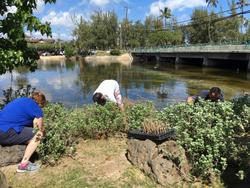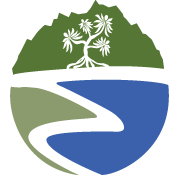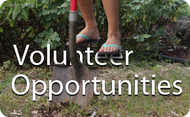This month marks the fifth anniversary of the Popoi'a Street Retrofit & Native Garden Project!9/1/2017  This month marks the fifth anniversary of the Popoi'a Street Retrofit & Native Garden Project! This Low-Impact Development project, developed in 2012, retrofitted 12,000 sq. ft. of an existing parking lot owned by City and County of Honolulu Parks Department adjacent to Ka'elepulu Stream in Kailua (located at 413 Kawailoa Road in Kailua) to improve the quality of storm water runoff. This crushed coral stream bank was home to hundreds of cars per day but every time it rained, there was only one place for the polluted parking area runoff to go, straight into the stream. Until the Fall of 2012, and many years before, each rain storm would discharge a milky plume of sediment, trash, oils and hydrocarbons directly into the stream. In September of 2012, HOK broke ground on this retro-fit project and pervious brick pavers were installed in the parking area to help infiltrate storm-water runoff and reduce the amount of pollution reaching the stream. Additionally, the project improved 360 feet of riparian habitat through the installation of native plants and rain gardens. Popoi'a Street Retrofit & Native Gardens Volunteer Workday Saturday September 9th, 9:00 a.m. -11 a.m. Volunteer to help maintain this project in urban Kailua while learning about native Hawaiian plants and local watershed issues. We will spend some time pruning the existing vegetation and out-planting more plants. This site is easily accessible and suitable for volunteers of elementary school age and older. Please arrive by 9 a.m. and stay as long as you wish. Volunteers are asked to wear shoes and work clothes that they don't mind getting dirty, bring a water bottle, sun protection and snack. Work gloves, tools, and ice water to refill your bottle will be provided. Please RSVP for this event here. Additional project information & location on our website.
0 Comments
|
Archives
September 2022
Our MissionThe mission of Hui o Ko`olaupoko is to protect ocean health by restoring the `aina: mauka to makai. This is done in partnership with stakeholders including interested citizens, non-governmental organizations, government, educational institutions and businesses while using and focusing on sound ecological principles, community input, and cultural heritage. Categories
All
|

 RSS Feed
RSS Feed

